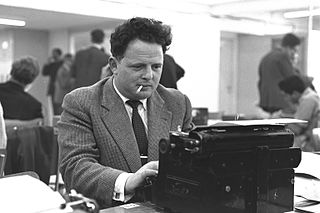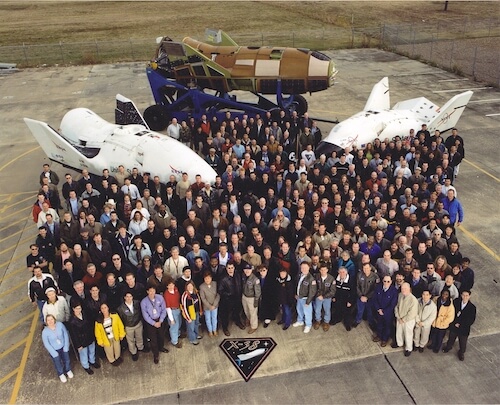 If I asked you:
If I asked you:
“What is your project goal?”
I could immediately tell if your project could potentially become a success. Or a big failure.
Because of a small but important distinction.
Read this article to understand how to avoid this serious mistake. And I’ll show what makes a good project goal.
But first, let’s take a step back and ask:
1. Why do organizations launch projects?
It’s not because they are bored or want to blow some money.
Well, your experiences may actually give you this impression.
But the reason is:
Organizations start projects because they want to improve something. Their products or processes for example. They want to create a better outcome than what they had before.
Depending on the project, improvement is measured differently.
A company may want to increase its revenue by launching a new product. So, the whole product development project is centered around making money for the business. A city that decides for building cycling lanes is concerned about protecting its cyclists and saving lives.
So, every project has a deeper reason why it’s being initiated.
A higher goal, if you will.
This leads us to the question:
2. What are project goals?
A project goal is a tangible statement of what a project should achieve.
Imagine you are looking into the future, let’s say one year from now. What is the outcome the project has accomplished? That’s the project goal.
Examples:
- Improve employee satisfaction by introducing flexible working hours.
- Introduce mobile devices for sales staff to reduce average order time and increase customer satisfaction.
- Upgrade network infrastructure to increase bandwidth and eliminate network outages.
3. Why you should define a project goal

What are your personal goals?
For example:
- You want to become a manager
- You want to loose weight
- You want to start an online business
Let’s pick one: you want to become a manager.
You give your best every day, so that your boss as well as others recognize your talent. And finally pick you for a leadership role. On some days your job sucks, because of high workload or because you have to deal with difficult people. Still, your goal of becoming a manager is what motivates you to keep going.
The learning?
Goals motivate us to keep going (even if things get hard).
That’s true for personal goals but also for project goals!
There’s another reason why we have goals.
Goals give us a clear direction.
Some projects are huge in terms of budget, duration and team size.
Think of a project with a team of 500 people.
Do you think even the 500th team member knows exactly what he was hired for if there was no clearly defined goal? Of course not. Big teams are hard to manage. And it’s even harder to get people to commit to a common vision. But if you are able to formulate a concise 1-2 sentence project goal, this can really help bind your team together.

4. The serious mistake many people make
I’ve read many project goal definitions.
And there’s a terrible mistake I often see people make:
People confuse process with the purpose. They confuse output with outcome.
It’s like saying:
“I want to see a doctor to get a prescription”
That’s not your aim!
You are going to the doctor to be healed and to feel better. That’s your goal Getting pills is just part of the process!
What’s funny:
Many people don’t get this difference when defining a goal.
To make my point very clear, here are few BAD examples of project goals:
Bad example 1: “The project goal is to roll out the software SuperSoft at our company.”
My comment: So, you roll out a new software and then what? What if it doesn’t meet users’ needs? What if the project causes massive disruptions to business? You can claim the project has achieved its goal. But it has done more harm than good (like many IT projects).
How could you improve the goal definition? You could add a subphrase like: “… roll out Supersoft at our company and increase employee satisfaction” or “… roll out Supersoft at our company and increase process performance by 30%”
Bad example 2: “The project goal is to build a new website for our company”
My comment: Nice! Spend $ 10’000 on a shiny new website with a fancy logo and beautiful images. Alternatively you could just flush the money down the toilet. Because without a clear goal in mind the website will just be an expense that won’t accomplish anything for you. What would be a good reason to have a website? Business websites have one purpose: Make money. Get prospective customers to find your products and get them to buy.
How could you improve the goal definition?
How about this one: Build a new website for our company to drive online sales by 20% over the next year.
I think you got the point:
A project goal should be tied to a higher purpose.
For example:
- increase sales
- cut cost
- increase profitability
- increase safety
- protect the health of people
If your goal isn’t tied to a higher purpose, it may just end up as another wreck on the bottom of the sea. Because it didn’t bring the results it was supposed to deliver.
5. Project goals and objectives: What’s the difference
Probably you’ve heard people talk about objectives.
What’s the difference?
I’ll tell you: A goal is the overarching outcome the project is supposed to achieve. Objectives are the tangible outcomes or effects on the target or the stakeholders.
Example:
Project goal:
Build a new warehouse in the Pittsburgh region to better serve our customers on the east coast.
Sample Project Objectives:
- Reduce average delivery time from 3 days to 1 day.
- Increase customer satisfaction ratings from 3.5 to 4.5 points.
- Reduce total shipping cost from $3m to $2.7.
- Hire additional staff for all logistical processes
From this example you can see how goals and objectives are related.
Objectives are the tangible deliverables that support a (higher) goal.
Note that objectives should be specific and measurable, ideally formulated as SMART targets. Depending on the field you’re in, you can also define KPIs as project objectives.
Ask me a question
 Do you have a specific question about defining a goal? Or about project management in general? Post your question in the comments and I’ll answer it.
Do you have a specific question about defining a goal? Or about project management in general? Post your question in the comments and I’ll answer it.
Best wishes,
Adrian

Author
-
Hi, I’m Adrian, a Senior Project Manager and the Creator of Tactical Project Manager, where I teach a pragmatic approach to project management. Led large-scale IT and business projects for over 10 years. My goal is to enable you to lead any project with confidence.
View all posts



